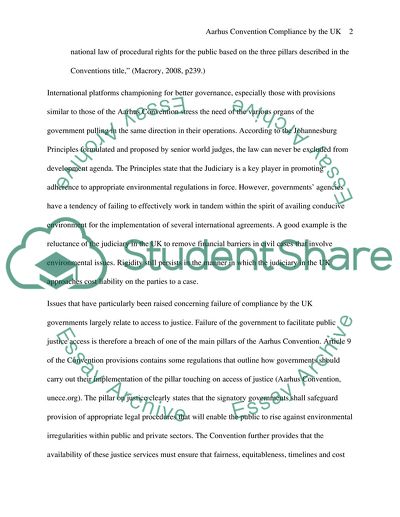Cite this document
(“Aarhus Convention Compliance by the UK Essay Example | Topics and Well Written Essays - 2750 words”, n.d.)
Aarhus Convention Compliance by the UK Essay Example | Topics and Well Written Essays - 2750 words. Retrieved from https://studentshare.org/law/1748099-environmental-law
Aarhus Convention Compliance by the UK Essay Example | Topics and Well Written Essays - 2750 words. Retrieved from https://studentshare.org/law/1748099-environmental-law
(Aarhus Convention Compliance by the UK Essay Example | Topics and Well Written Essays - 2750 Words)
Aarhus Convention Compliance by the UK Essay Example | Topics and Well Written Essays - 2750 Words. https://studentshare.org/law/1748099-environmental-law.
Aarhus Convention Compliance by the UK Essay Example | Topics and Well Written Essays - 2750 Words. https://studentshare.org/law/1748099-environmental-law.
“Aarhus Convention Compliance by the UK Essay Example | Topics and Well Written Essays - 2750 Words”, n.d. https://studentshare.org/law/1748099-environmental-law.


